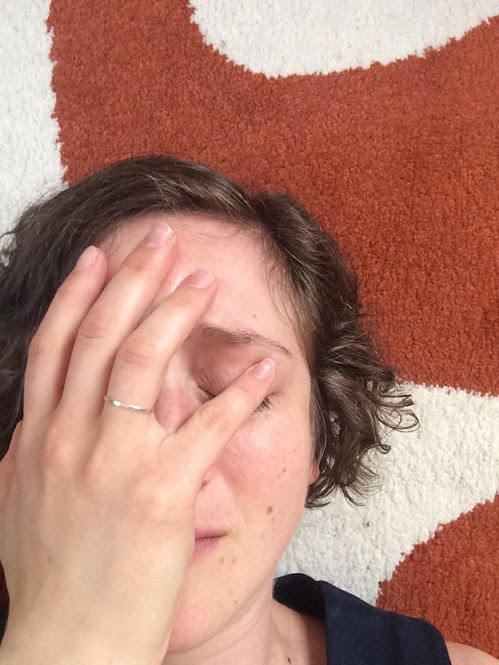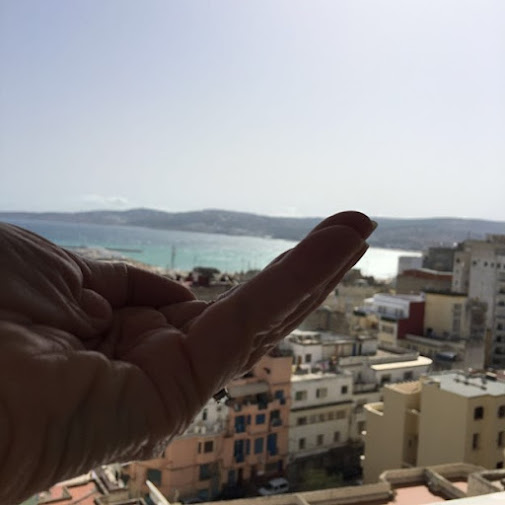This project began from a desire to collaborate without a specific
direction, a desire to make something just for the sake of making it, to reach
out and be in contact with one another, under one another’s friendship and
influence. What would build? In June of 2015, T sent A a recording:
Came the reply: “Today the rain was a release of feathers in a midnight of af—”
The last word, cut off, part of the learning process as we let ourselves explore what we might make with the space between us, in opposite corners of opposite coasts, in different stages of our lives, in distant frames of mind.
In our two rainy cities, we were leaving the wettest season behind, and we were thinking about rain: its capacity to penetrate everything, to unsettle or nurture foundations, to be channeled and to make new channels. If we could reach each other, would we mix weathers?
And so we set out to dial one another’s numbers, sending coded messages across the networks—daily missives to keep in contact despite distance, using voice to swim asynchronously toward one another, feeling our way along this call and response without a sense of where the pipes would lead and gradually developing what T called a “hydropoetics” as we attempted to speak and to read like water.
We wanted (we now think) to let ourselves develop a mind of rain (sorry, Stevens), to see what might wash out. And when one wellspring ran dry, we sought new dowsing rods to show us another, certain we had something to learn from rain, from flood and from its attendant and alternate disaster, fire, which scorched Washington and the West coast that summer as it has these past years, filling the sky with ash and painting the sunset an even more dramatic amber and gold. These two present effects of climate change, these two futures we need to undo and to repair, if such a thing were even possible.
After the numbered codes, we looked to friends for guidance, dipping
into the texts we were reading in search of runnels that might help us channel
water for the flames. Guided by Apollinaire and numerology, we traced
language’s tears down the cheek of the page. Apollinaire became a decoder ring
for each book we opened to the pages that correspond to the average rainfall in
our cities:
From Amaranth: “Not interpreting riders. Being on is no familiar. View small nothing. The bin where slower and only people roaring have it. Not passersby struggling, reversed from angels.”
Leslie Scalapino, How Phenomena Appear to Unfold” 56.
And Terri in reply: “Metal return within saliva. Resonance throughout, and to dream. Plui. je. plui. listened. Rain, misty snow. Sheets, again, overcome voices.
The Dream of the Audience: Theresa Hak Kyung Cha 38.We were seeking guides in these transmissions, other mothers and
sisters, especially. And so we kept trying to reach one another. What was it we
were trying to weather? We sent instructions, we sent images, we sent
maps to our locations. We checked in again and again.
From Terri: “As I recall it, when we were walking around we were talking about writing to each other—by voice—in order to consider, a little bit, what an audio friendship would be like. I don’t think it’s quite like people on the phone, that we’re talking into our phones.
I’m happy thinking about walking around Washington with you. I’m writing this, or speaking this, I should say, from my sickbed. I’m as sick as I have been since childhood all of a sudden. A funny way to think about voice. I don’t think I’ve talked this long (laughs) since I got sick.”
For two years this exchange, at first nearly daily and then more sporadic, sustained us and our friendship, creating space for joy and grief.
“Cry With One Eye”
Image Description: A fair-skinned white person with curly hair lies against an abstract orange and white background with one hand covering their face.
“Hold Something Old”
Image Description: A cupped hand, backlit, cradling a port with aquamarine water above a city of multi-story stucco buildings in pink, white, and yellow.
And because it was always an exploration, we allowed it to wash over us. We waited. We saw one another at conferences, missed connections when in the same city, sent texts and pictures. There was an underground system connecting us, it seemed, something covered over as in an ancient city. Or something overhead like cloud systems reforming. The world kept changing. Much changed for us, too. We softened or speeded into new shapes. Transformed. Transmitted.
Then in the summer of 2020, our double coasts rose like sculptural borders at doubled ends of the world. We began to write/ tangle/ miss each other as if we would never meet, but could only hope for a series of attempts in which what fell from us: sounds, images, contagions, would mutate without us. And maybe without knowing it, these future-traces would carry a rider. We now held and beheld something old—our selves in their shirtsleeves searching for something they didn’t understand. And then we heard the voices of Seres and Treble, their missives pointing to possible futures both serious and troubled. Two worlds each beset by its own disaster—a world of fire and a world of water—each reached for someone who might understand what it means to lose/ release a child and/or a world, who might know a waterway forward.
The long poem published by above/ground press, Initial Contact,
is part of this longer speculative ecopoetic manuscript, W/\SH, which
grapples with climate catastrophe through a series of transmissions sent
between women on two worlds—one beset by torrential rains and the other by
extensive drought—two very real futures of climate change. These women seek to
understand what has brought them to this point and to balance out their two
realities in the hopes that something will allow them to course-correct for the
sake of their children, who will inherit these derelict worlds. Maybe
these offspring have already met in another future. Or maybe they too
will miss/missive each other in sound, image, text or whatever
double-tongued-winged-thing comes next. Maybe they too will find
themselves to be riders, building worlds that unbuild, seeking “Resonance
throughout, and to dream.”
Audio description: Rare Heavy Seattle Rain
Terri Witek is the author of 7 books of poetry: her newest collection is The Rattle Egg (2021). Recent work has been featured in two new international anthologies: JUDITH: Women Making Visual Poetry (2021), and in the WAAVe Global Anthology of women’s asemic writing and visual poetry (forthcoming). Her many collaborations with artists and writers have been featured in performances, museum shows, and gallery exhibitions. Witek teaches Poetry in the Expanded Field in Stetson University’s MFA of the Americas with Brazilian visual artist Cyriaco Lopes, and their work together is represented by The Liminal in Valencia, Spain. terriwitek.com
Amaranth Borsuk is a poet, scholar, and book artist working at the intersection of print and digital media. Her latest volume, The Book (MIT Press, 2018), is a concise introduction to the book’s changing technologies that bridges book history, artists’ books, and electronic literature. She has collaborated on installations, art bookmarklets, interactive works, and poems, and is the author, most recently, of the poetry collection Pomegranate Eater (Kore Press, 2016). Borsuk is Associate Professor in the School of Interdisciplinary Arts and Sciences at the University of Washington Bothell, where she also serves as Associate Director of the MFA in Creative Writing and Poetics. amaranthborsuk.com





